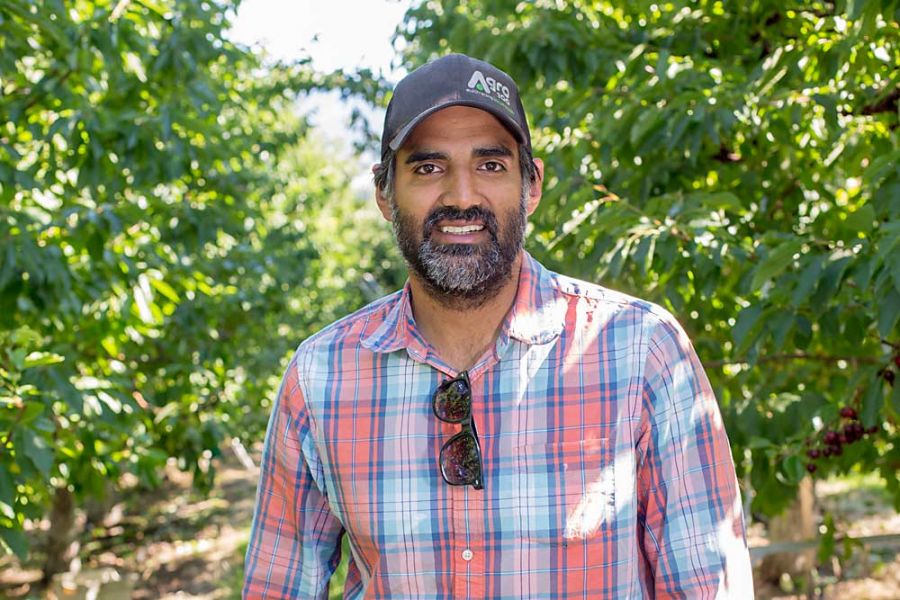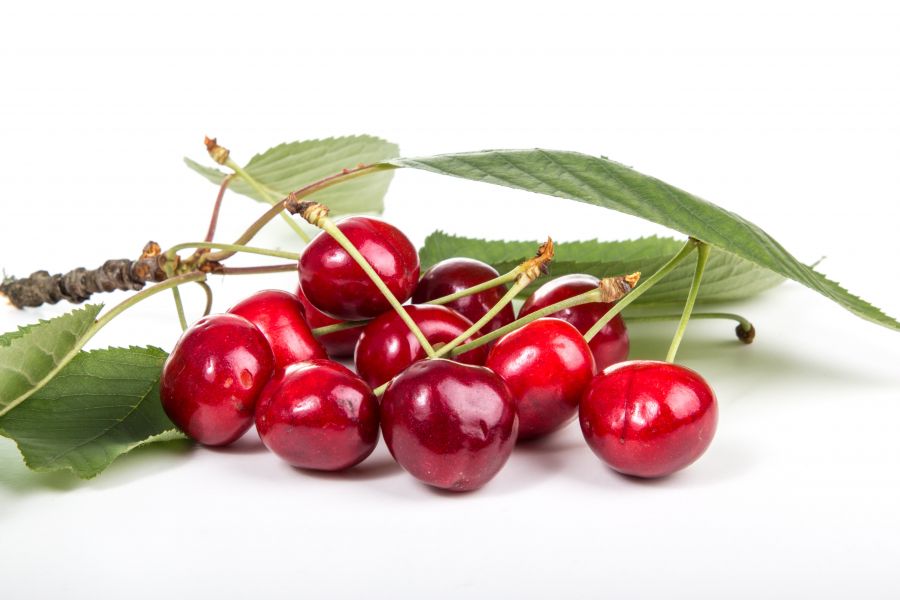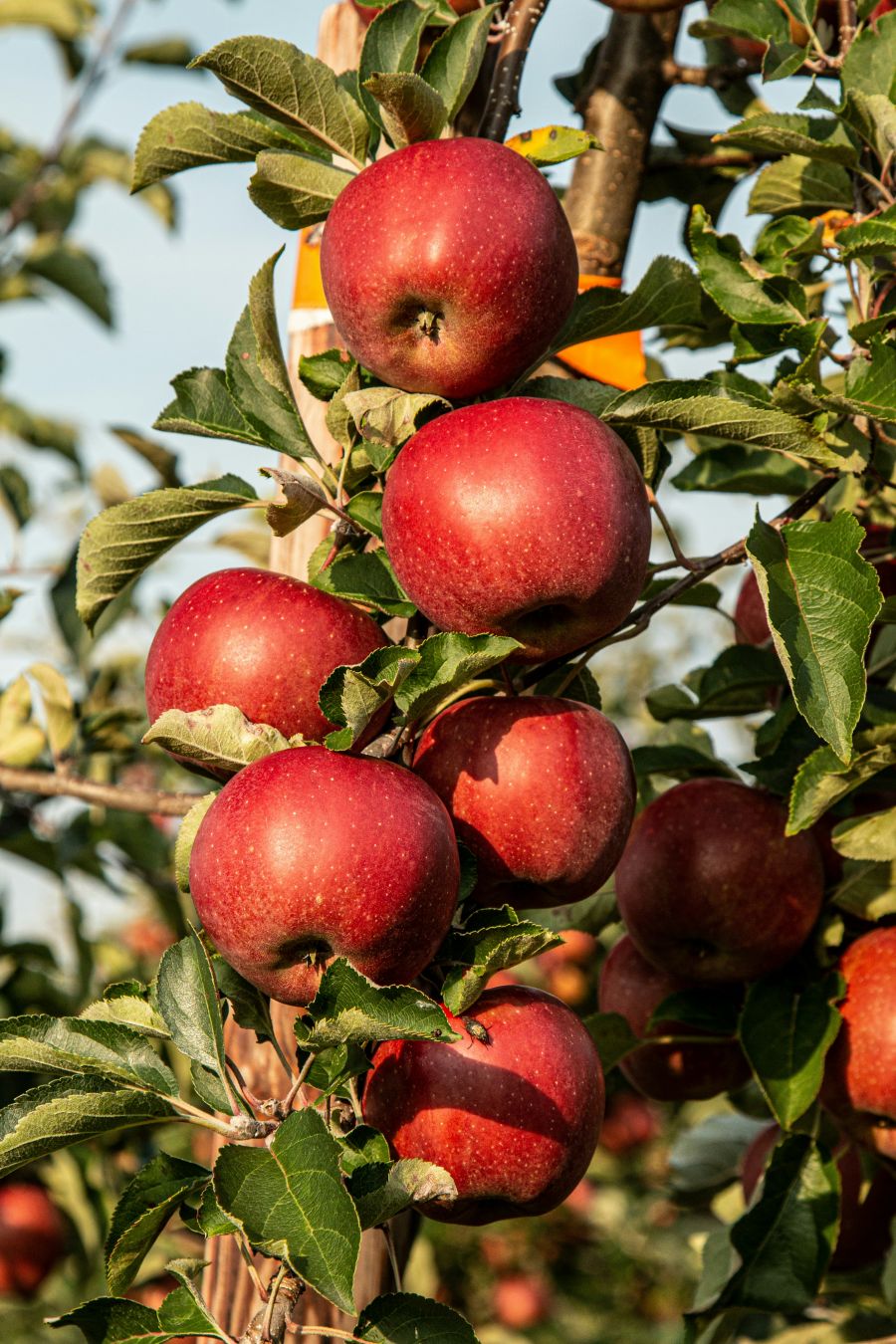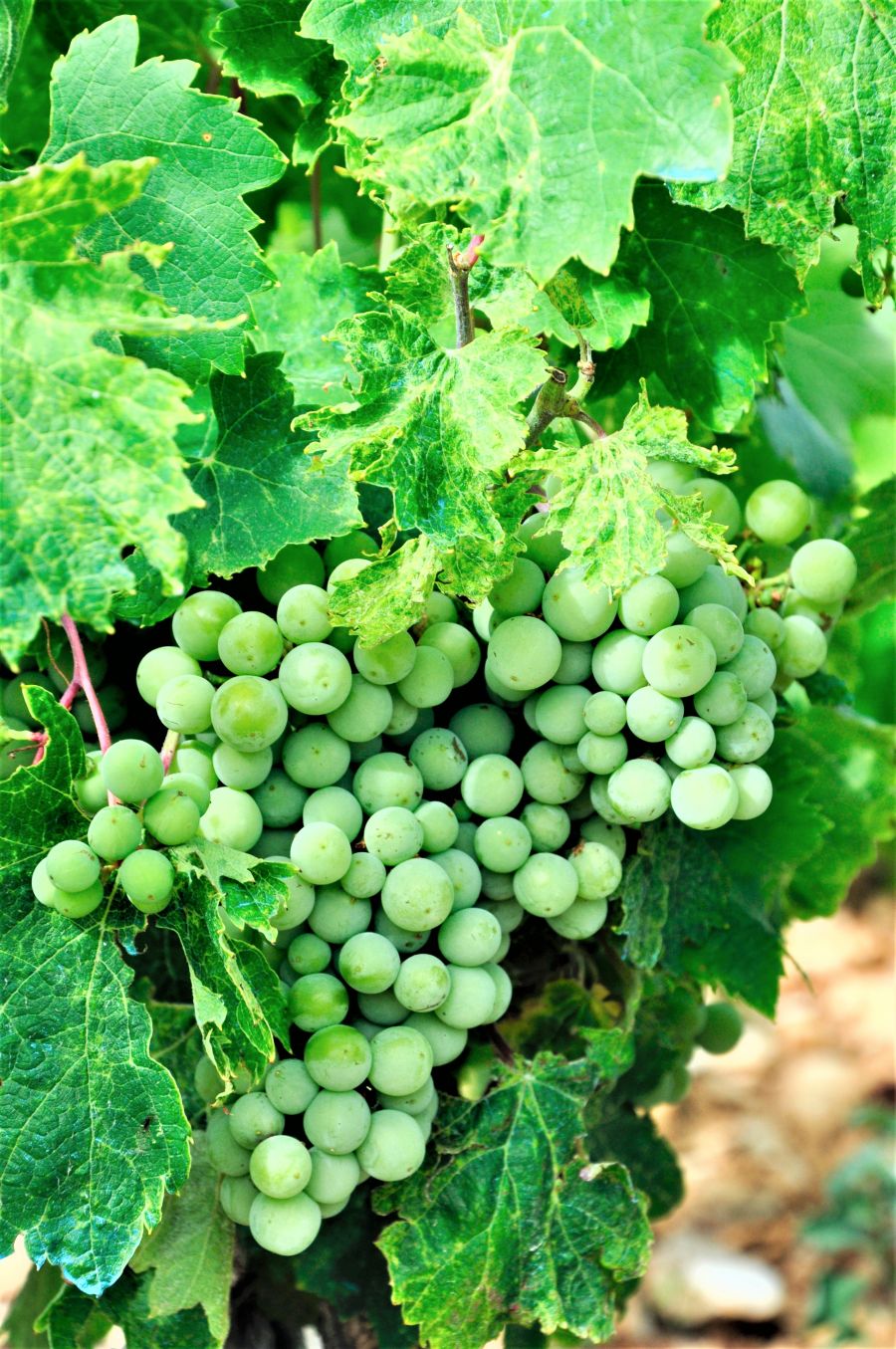When we catch up with Sukhpaul Bal he's, naturally, in the cherry orchard.
"Here, just let me turn off the tractor," said the Rutland cherry grower and president of the BC Cherry Association.
"It looks really nice here in the orchard, very promising. There's lots of cherries growing on the trees. Of course, they're pea-sized right now and green, but by the summer they will be big and red, a real delicacy."
The scene delights Bal, especially after last year's cherry disaster.

A brutal cold snap in January killed most of the buds on cherry trees so no fruit formed.
By harvest time in the summer, the cherry crop in the Okanagan was only 25% of normal.
And, no cherries grew on Bal's 100 acres of orchards on Rutland's hard-hit upper benches.
In a typical year, Bal's yield is around one million pounds of cherries.
"This year, we're hoping for a record -- about 100 million pounds of cherries from the 7,000 acres of cherry orchards there are in BC," he said.

Bal is speaking out as the new Cross-Commodity Leadership Support Project outlines its work.
Bal and the BC Cherry Association are partners in the project, which was formed after five years of hardship for the tree fruit and wine grape industries.
In that five years of hardship, the project is counting the pandemic, heat dome, deep freezes and Trump tariffs.
The project, with $900,000 in provincial government funding through the Investment Agriculture Foundation of BC, brings together tree fruit and wine grape groups to work on awareness, marketing and rebuilding.
For instance, the project supports Canadian Cherry Month, which promotes the crop to retailers in eastern Canada, who are already ordering cherries from BC growers.
"Canadian (buyers) are showing incredible support for local," said Bal.
"There's a real sense of pride in choosing Canadian-grown, and it's translating into strong demand from coast to coast."
An export program is also seeing cherries sold to lucrative markets in China, Japan and Korea and Europe.
The project is taking a wait-and-see approach with the US, which is traditionally the biggest export market for Okanagan cherries, to see if tariffs are a factor.

Luckily, apples, which are the Okanagan's biggest cash crop with 110,000 tons of apples coming off 6,700 acres of apple orchards, weren't affected by 2024's nasty cold spell.
Apples trees and buds are hardier.
Apple futures are selling well both across Canada and in export markets.
The pear crop looks good this year.
And the peach, nectarine, apricot and plum crops, which were wiped out in 2024, are coming along nicely in 2025.

The decimation of the 2024 wine grape crop tended to receive the most attention because wine is a glamour business that attracts two million tourists a year and has an overall economic impact of $3.75 billion annually.
To keep that juggernaut rolling, the province allowed wineries with no 2024 harvest to purchase grapes and-or wine from elsewhere (generally Washington state, Oregon and California).
Okanagan winemakers and winery staff made the wine and the wineries bottled and can sell the wines under a 'Crafted in BC' designation.
"This season just feels different," said Walter Makepeace, owner of Hugging Tree Winery and Makepeace Organic Farms (grapes and apples) in Keremeos.
"You can see the health in the (grape)vines and the blossoms. It's a welcome shift from the struggle of past years."
Beside killing the buds that turn into grapes, the January 2024 severe cold also killed many grape vines.
Those vines have been pulled out and replanted.
Vines that survived budded and will produce grapes this year.

While buoyancy abounds this year, the tree fruit and wine grape industries still face multiple challenges.
They range from a farm labour shortage and farm worker housing crunch to climate change, high cost of production, tight profit margins and possible tariffs.
"But, overall, I would say the mood is hopeful and optimistic," said Kellie Garcia, director of the Cross-Commodity Leadership Support Project.
"Our progress shows what's possible when we work together. Even with limited capacity, we're solving problems and creating momentum. It's encouraging to see so many people step forward to support the sector and each other."





















